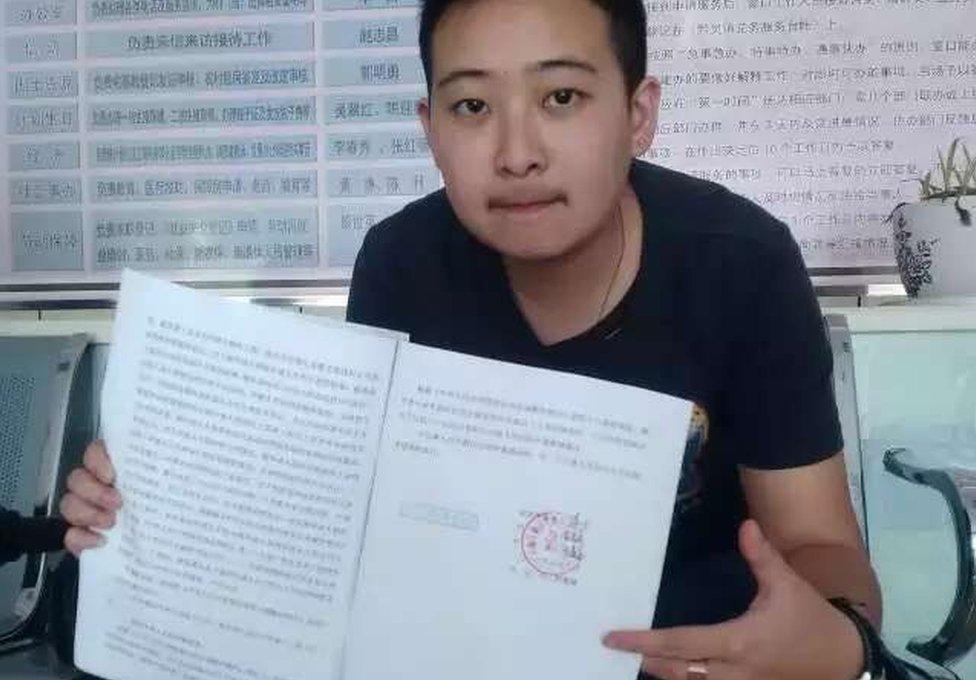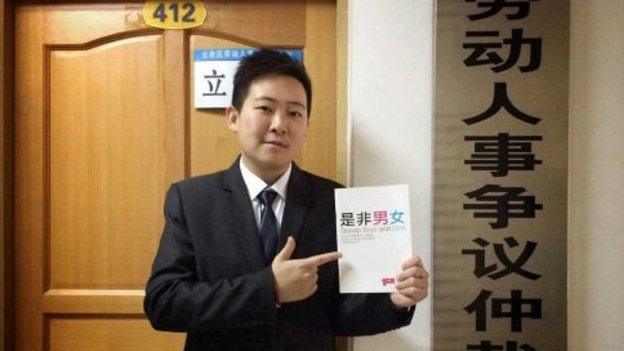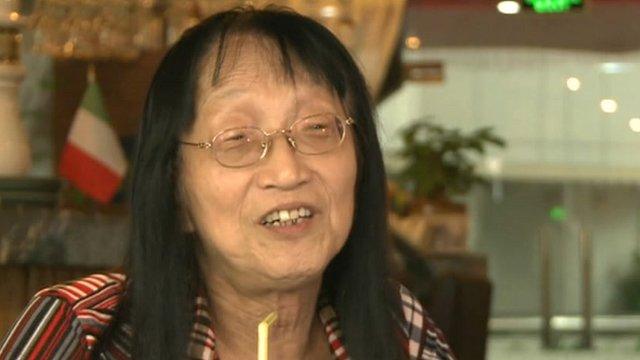China transgender case: 'Mr C' vows fight on for equality
- Published

Mr C said he was "disappointed" with the decision
A Chinese transgender man has vowed to keep fighting for equality after a court rejected his complaint that he was fired unfairly.
Mr C, 28, who was born a woman, worked in a health centre in the city of Guiyang and was reportedly fired for wearing men's clothes.
The tribunal in Guizhou province has awarded him unpaid wages but has ruled that his dismissal was legal, he says.
It is the first case of its kind in mainland China.
China does not recognise many LGBT rights such as gay marriage, and its laws do not protect people from discrimination based on sexual orientation or gender identity.
Mr C told BBC Chinese he was "disappointed" with the ruling.
"If a company can dismiss someone because of the way he dresses and is judged not illegal, then what more excuses do they need to dismiss someone?" he said.
"The case made me realise that discrimination against transgender [people] is more severe than I had thought. I will keep appealing to safeguard my legitimate right."

Mr C said he wanted an apology from his former employer
He was hired for a sales job with Ciming Checkup company in 2015 but was let go a week after starting work.
The tribunal dismissed recordings presented by Mr C's lawyers that, according to them, showed there had been discrimination based on his transgender identity.
Instead, the court accepted the company's claim that he was dismissed due to poor performance.
An unidentified worker for the company denied that it had discriminated against Mr C, the Associated Press news agency reported.
Mr C also claimed his employers had withheld his pay because of his identity. The judge granted his demand for about $62 (£43) in unpaid wages.
"Winning back my unpaid wage doesn't change a thing. This is not what I want. I will continue to appeal. I will not let it go without an apology (from the employer)," he said.
There were reports that journalists in China were asked not to report the case.
- Published13 April 2016

- Published13 April 2016

- Published12 July 2012
